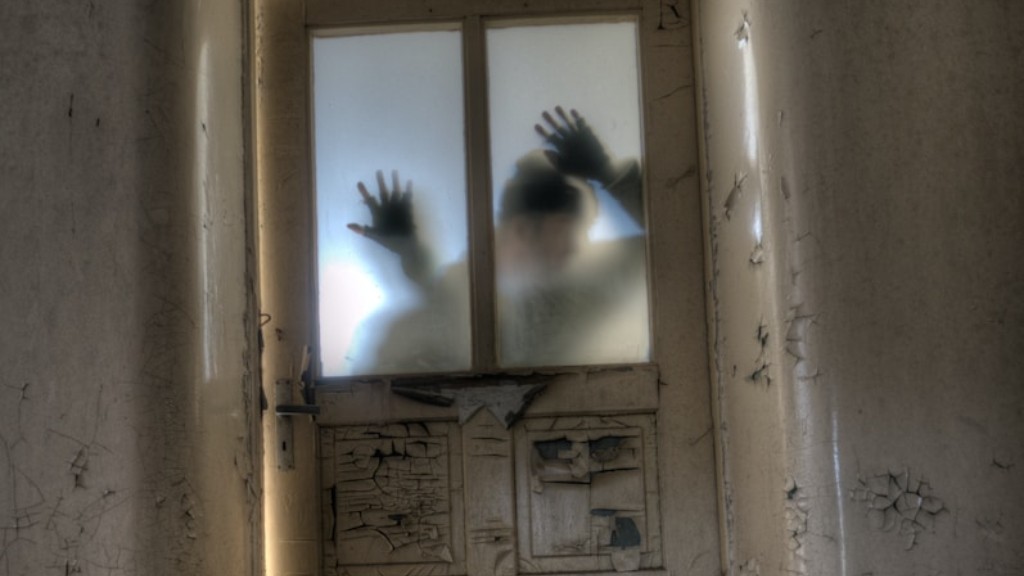Thrillers are one of the most popular movie genres. They provide audiences with adrenaline-filled experiences and many people find them to be fun and exciting. But are they really as scary as they’re made out to be?
It depends on who you ask. Many people say that thrillers are not as scary as horror films, since they often have a plot or storyline that is pulled along by the suspense. Thrillers typically rely on suspenseful moments and intricate twists and turns, while horror films generally use jump-scares and intense gore to shock the audience. Thrillers are often more of a psychological experience, while horror films are meant to be more of a visceral one.
Experts believe it is the amount of anticipation and anticipation that makes thrillers truly terrifying. Thrillers are often packed with nail-biting suspense and action sequences that keep viewers on edge from start to finish. A great thriller can keep the audience in suspense for a long period of time, and the viewer is left with an uneasy feeling once the credits roll. This feeling can even linger after the movie has finished.
Many experts agree that it is not only the plot or the action sequences that make for a truly frightening experience, but also the cinematography and sound that are used to create a tense atmosphere. Many thrillers often employ a dark, brooding score to heighten the feeling of dread, coupled with intense camera angles and lighting to give a sense of gripping suspense. These elements can often be enough to make the viewer feel uneasy, even without the plot being overly intense.
Furthermore, some argue that thrillers are more engaging than horror movies due to their more intricate nature. For example, thrillers often require viewers to become immersed in the story and think about the various plot points in order to understand the twist and turns that lead to an unexpected ending. Horror movies, on the other hand, are often easier to follow, since they are often a series of jump scares and gore-filled moments.
The level of fear that each individual feels when watching a thriller often depends on their personality. Some people may find thrillers to be far too intense, while others may enjoy the heightened sense of anticipation and intellectual stimulation that comes with being fully engulfed in the film. It can also depend on the person’s familiarity with the genre and their overall level of tolerance for suspenseful moments.
Finally, even the most intense thrillers have moments of relief. A good thriller should balance fear and suspense with moments of humour and lighter moments, which allow for a breather for the audience before the suspense starts up again. After all, too much suspense and no moments of relief can make the movie too much to handle.
Different Types of Thrillers
Thrillers come in many different varieties, and can range from horror-filled slashers to more subtle dramas. Slasher films are often filled with intense jump-scares and intense violence, while dramas tend to rely more on psychological tension and slow-burning suspense. Other types of thrillers include mystery thrillers, crime thrillers, and science-fiction thrillers.
Slasher films are often the most difficult type of thriller to watch, as they are packed with intense scenes of violence, often with graphic images of death. These types of films tend to rely heavily on sudden shocks and jump-scares, which are effective in building up suspense. However, viewers have to be prepared to see a lot of fear-inducing images, which can often be too much to handle.
Mystery thrillers focus more on slow-burn suspense, as they often involve solving a puzzle or uncovering hidden secrets. This type of film often relies more on its intricate plot and character connections, as well as its gripping score, rather than gory death scenes or jump scares. These types of suspenseful movie can be both effective and enjoyable for viewers who are looking for something more complex than a slasher.
Crime thrillers often focus on the investigation of a crime, and the tension builds as the characters try to unravel the clues and make sense of the situation. These types of thrillers often require viewers to think about the various plot points in order to keep up with the twists and turns. However, crime thrillers can also contain instances of violence and suspense, so viewers should be prepared for a combination of genres.
Lastly, sci-fi thrillers are often a mix of both action and suspense. These thrillers often revolve around a futuristic world, where the stakes are often high and the audience is on edge. These types of movies often contain action sequences and thrilling plot elements, as well as stunning visuals and a gripping musical score.
Gender and Thrillers
Recent studies have suggested that men and women often have different reactions to thrillers. According to these studies, men were more likely to feel a sense of excitement and anticipation when watching a thriller, while women were more likely to feel scared or anxious. It is thought that the difference in responses may be due to the fact that women are more likely to notice and identify with the emotion of characters in thrillers, as opposed to men who often think of the film as exciting action.
Another factor that may be responsible for the different reactions comes down to the different types of thriller that each gender typically watches. Men are more likely to watch slasher films and other more graphic types of thrillers, while women are more likely to watch drama thrillers and mystery thrillers. Thus, women tend to watch more emotionally intense thrillers, which can often have a much more profound effect on them than the adrenaline-fueled and action-packed films that men tend to watch.
Overall, it seems that thrillers continue to be popular, and people of all genders can find something to enjoy. While some people may find thrillers to be too intense and scary, they can also be a great way to experience suspense and adrenaline-filled moments in the safety of a movie theatre. Whether you enjoy the intense violence of slashers, the slow-burn suspense of dramas, or the intellectual stimulation of mysteries, there is something to delight everyone in the world of thrillers.
The Psychological Effect of Thrillers
Certain thrillers can have a profound effect on an individual’s psychological state. At its core, a thriller relies on suspense and anticipation, and this can be enough to make an individual feel uneasy or unnerved long after the movie has ended. This is especially true of intense and graphic thrillers, as the viewer may become overly invested in the story and identified with the characters, leading to an overwhelming sense of dread.
Furthermore, thrillers are often unpredictable, and this can lead to heightened anxiety in viewers. It can be hard to predict where the plot is going, and the suspense may become too much for the individual. This can be especially worrisome for those who have anxiety or PTSD, as the unpredictable nature of thrillers may trigger the release of certain hormones and lead to a feeling of panic or fear.
Finally, some thrillers are designed to make the audience uncomfortable in order to build up suspense. This technique can be effective in creating tension, but can also lead to a feeling of unease and distress in viewers. This discomfort is often intentional, and is meant to make the viewer feel vulnerable and scared. Not all thrillers use this technique, but those that do can have a lasting psychological effect.
Real-Life Threats and Thrillers
Thrillers often feature stories that portray real-world threats and dangers. This can include terrorism, organized crime, or the potential for a dangerous virus or epidemic. These types of stories are often used as a way to explore how individuals and communities respond to such threats and chaos. This often makes for an incredibly suspenseful story, as viewers wait to find out what will happen next.
Additionally, these stories often attempt to explore human morality and how individuals cope with difficult situations. Thrillers can be a great way to highlight certain themes, including the power of love, redemption, and justice. Thrillers can also be used to present moral dilemmas that challenge viewers to think about the difficult choices people make in the face of life-and-death situations.
Although thrillers can be entertaining and thought-provoking, they are not always accurate portrayals of real-world threats. While they may be informative to a certain degree, they are often dramatized to make them more exciting or to further the plot. Therefore, it is important to consider the source and take thrillers with a grain of salt if trying to understand an issue.
Stereotypical Representations of Thrillers
Often, the stories found in thrillers can be seen as carrying a certain stereotype; an ‘us against them’ narrative in which some characters are seen as heros and others as villains. This can often be seen in pictures of good versus evil, in which individuals must make difficult choices in order to ultimately prevail in the end. While this can make for a thrilling story, it can also create certain presumptions that might not accurately portray real-world events.
Furthermore, thrillers can easily become oversimplified into stories that reduce complex issues into black-and-white concepts. For example, thrillers may portray certain social or political issues in a manner that does not reflect reality, or could oversimplify the nuances of a situation. It is important to keep this in mind when watching a thriller, as these types of stories can easily become a justification for an oversimplified view of the world.
In conclusion, thrillers can be an exciting and adrenaline-filled way to experience fear and suspense in the safety of a movie theatre or on a laptop. Whether you prefer intense jump-scares or slow-burning suspense, there is something for everyone in the world of thrillers. However, it is important to consider the source, as some thrillers may oversimplify or misrepresent certain themes and ideas. Ultimately, it is up to the individual to decide how far they are willing to be scared and to form their own opinion on whether thrillers are truly frightening.



